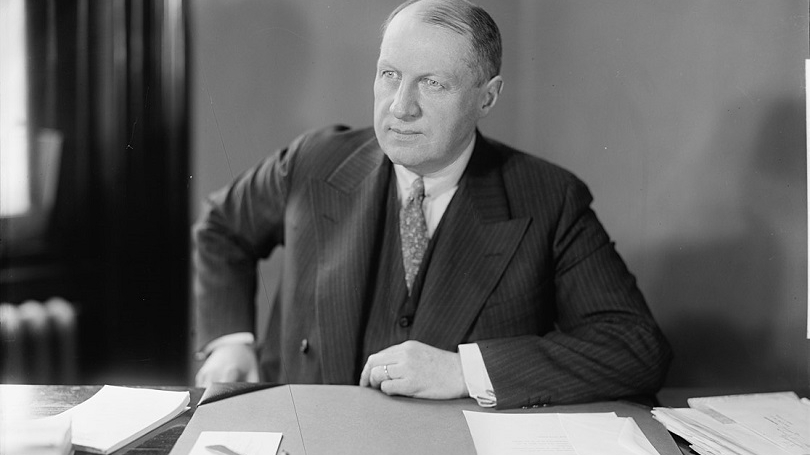
- Public Policy
- Leadership
- Funding
- News & Events
- About the Center
Back to Top Nav
Back to Top Nav
Back to Top Nav
Back to Top Nav
This article is part of a series honoring Dartmouth Alumni who have served in public office and demonstrated their commitment to the ideals of public service, leadership, and civic engagement.
It is not often that a college dropout becomes a U.S. Attorney, governor, and United States Senator from the state where he or she grew up. Fred. H. Brown ’03, spent just one academic year at Dartmouth College, but would eventually receive an honorary degree from the College upon his election to the governorship of New Hampshire in 1923 and appointment as an Ex-Officio Trustee.
During his single year at Dartmouth, Brown played on the varsity baseball team. According to sources at the time, Brown was “one of the best catchers that ever donned a Dartmouth uniform.” One of Brown’s fondest memories at Dartmouth consisted of a rematch game against Williams College. Bolstered by support and enthusiasm from a surprise showing of over 200 Dartmouth students who drove all the way from White River Junction in support their team, Dartmouth defeated Williams 11-2.
Along with his membership on the varsity baseball team, Brown was a member of the Delta Kappa Epsilon fraternity at Dartmouth, which was founded in 1853 and later became known as Storrs House in 1970. Delta Kappa Epsilon, which is now completely defunct, was one of eleven active fraternities at Dartmouth in 1900.
Following his separation from Dartmouth, Brown went on to play professional baseball in Boston and attended Boston University Law School. While never receiving an undergraduate diploma, he earned his law degree and gained admission to the bar in 1907.
In 1922, Brown ran for Governor of New Hampshire and won the gubernatorial election in “one of the greatest political upsets in 50 years” according to the July 8, 1956 edition of the New Hampshire Sunday News. Brown focused his campaign on the 48-hour work week, opposed a poll tax for women, called for home rule in the election of police commissioners, and committed New Hampshire’s Democratic Party to tax reform.
During his tenure as Governor, he remained popular with his constituents because he enacted robust fiscal policies. Brown came up short in his 1924 re-election campaign amidst Republican Calvin Coolidge's victory in New Hampshire during the coinciding presidential election. However, Brown's successor as Governor appointed him to the New Hampshire Public Service Commission, in which he focused on expanding public utilities to New Hampshire residents from 1925 until 1932.
During the 1932 general election, in which Democrat Franklin D. Roosevelt won the presidency in a landslide by promising a “New Deal for the American people,” Brown successfully ran for the United States Senate in New Hampshire and embraced Roosevelt’s New Deal platform.
He narrowly defeated incumbent U.S. Senator George H. Moses (R), a member of the Class of 1890 at Dartmouth College and a U.S. Senator since 1918. This might be the only United States Senate election ever in which one Dartmouth alumnus unseated another.
Not only did Brown’s victory in the 1932 U.S. Senate election make him one of the only Democrats to ever hold New Hampshire’s Class III U.S. Senate seat in the then-Republican stronghold of New Hampshire, but it also made him a key player in President Franklin D. Roosevelt’s New Deal. Brown became a close friend and confidant of President Franklin D. Roosevelt and U.S. Senator, VP, and President Harry Truman.
Throughout his career in public service, Brown was a tireless campaigner, a dedicated public servant, and a bit of a trailblazer as a liberal Democrat in the state of New Hampshire during the 1910s, 1920s, and 1930s.
Overall, Brown’s political career was predominantly defined by his devoted service to his constituents and his affinity for hard work. Brown positively and meaningfully impacted the lives of numerous Granite Staters and Americans over the course of his 30 plus years in public service.
Written by Jacob Maguire ’21, Student Researcher for the Dartmouth College Public Service Legacy Project.